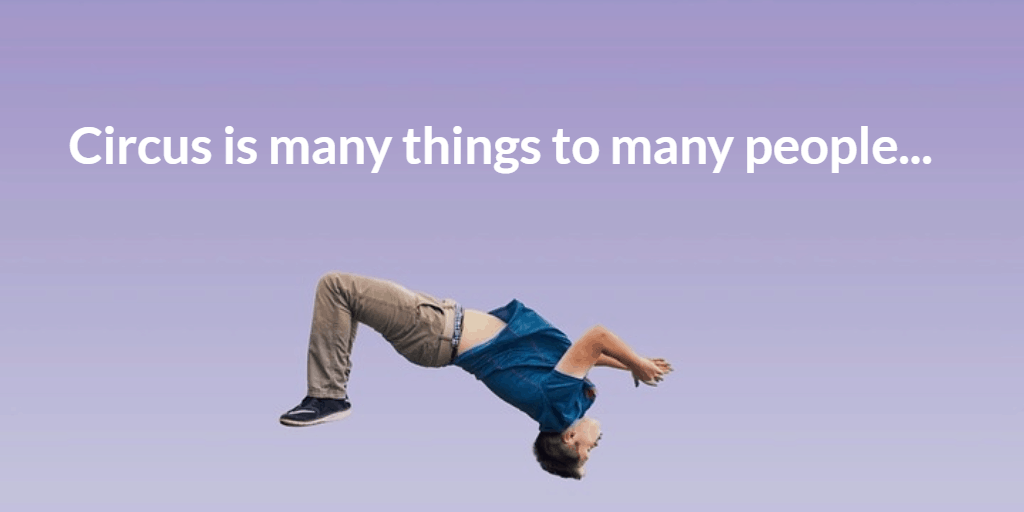On the surface of it, I am a strength and conditioning coach and my role is to make sure the athletes I work with develop, maintain and build balanced and strong bodies as a means of improving their performance. Get Circus Strong is a strength and conditioning resource for circus artist-athletes because circus arts are physically demanding and the way we as a community navigate strength and conditioning—particularly at the recreational level—needs some improving.
On the surface of it, strength training and metabolic conditioning for circus artist-athletes is the injury prevention strategy we don’t talk about enough. The field of strength and conditioning has made some significant leaps forward in the past ten years (and even in the past five years!) and yet all signs suggest that the circus arts community isn’t really aware of it.
Your silks/trapeze/lyra/acro/handstand class is for skills practice. It’s not where you will get stronger. Getting stronger happens in the gym (or wherever your weights are).
On the surface of it, injury prevention appeals to everyone because injuries get in the way of doing circus. Nobody likes that.
The thing is, we should really look at this a bit more closely.
Circus is many things to many people.
Professional performers regularly have the opportunity to communicate something powerful to their audiences. As the audience marvels at what the performers do, there is an underlying message about the magic, wonder and misunderstood limits of human potential.
Circus, of course, offers the possibility of communicating so much more than just look what I can do.
For many people, learning a circus art provide them with a chance to express themselves, as they are, in an environment that is safe, supportive and encouraging. Circus provides people with a refuge from life outside the studio. It’s a place of love, laughter, challenge and triumph. It’s a place where ideas about our own potential can be explored, challenged and expanded. It’s a place where everyone is welcome and valued for who they are.
And if, in the process, our bodies are not prepared for the rigors of the work, injuries are going to happen. Too many times, I have seen injuries that have robbed people of the joy of circus and forced them to sit on the sidelines. For some, this is a powerfully miserable experience that has them choosing not to come into the studio—the pain of watching when you can’t participate is not to be underestimated (speaking from personal experience here)—and this can sometimes lead to people not coming back at all. In pain and away from the place that brought them so much joy or such solace and refuge, we’ve lost them and they’ve lost circus. I think that is tragic.
It’s tragic because the real reason I’m here is because helping you get stronger will mean that you can focus your energy on what’s next. If I can take care of the plan to get to those first few pull-ups or to help make sure that after physical therapy, your shoulder is practically bulletproof because it’s so strong, then you can focus your energy on dreaming bigger.
Because you are capable and strong and can do and become so much more if you don’t have to waste time with unnecessary injuries or spinning your wheels trying to get stronger or more mobile when you don’t really know how. I’m here to help you to take care of those details so that you can take it to the next level.
That next level might just extend beyond the circus studio. It might be that the strength you develop through your circus arts training makes life outside the studio easier to navigate because being stronger makes you feel stronger. Knowing that you are capable of more than you once thought you were at your circus school might just help you to see that you are capable of more than you once thought you were, period.
Or maybe that next level extends beyond yourself to the community in which you live.
It’s really up to you.
But if you’re focus is on figuring out how to get stronger or more mobile or how to support your growth with good nutrition, then all of that is energy that could be better directed elsewhere.
My role here is to take care of those details for you so that you don’t need to direct so much energy into figuring it out. With the strength and conditioning thing sorted, you can ask yourself what’s next?

